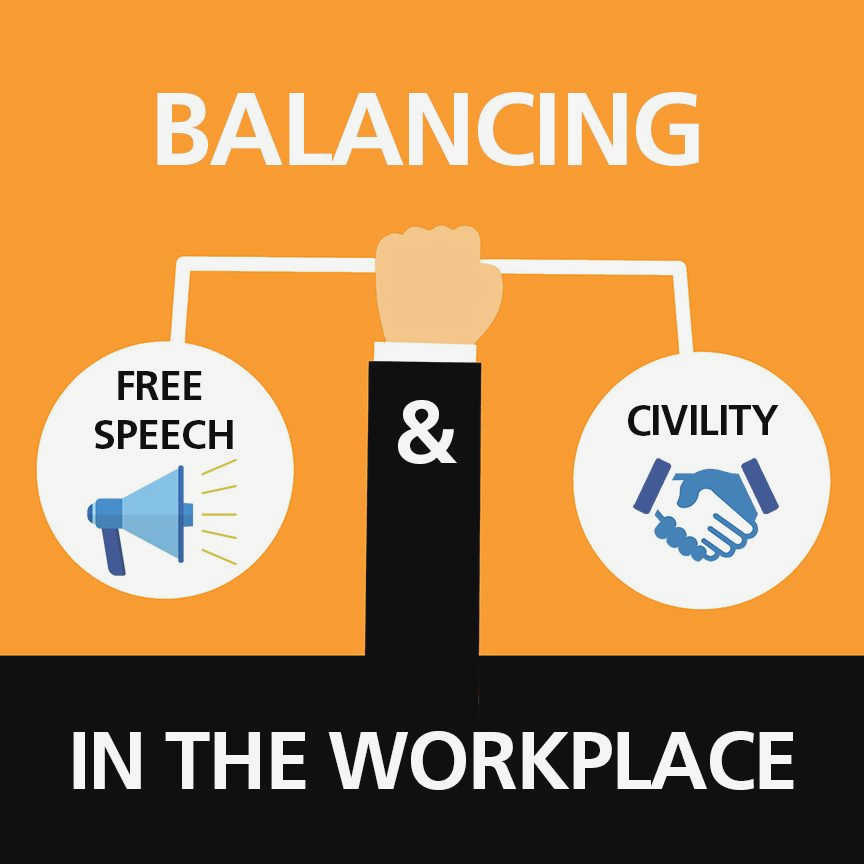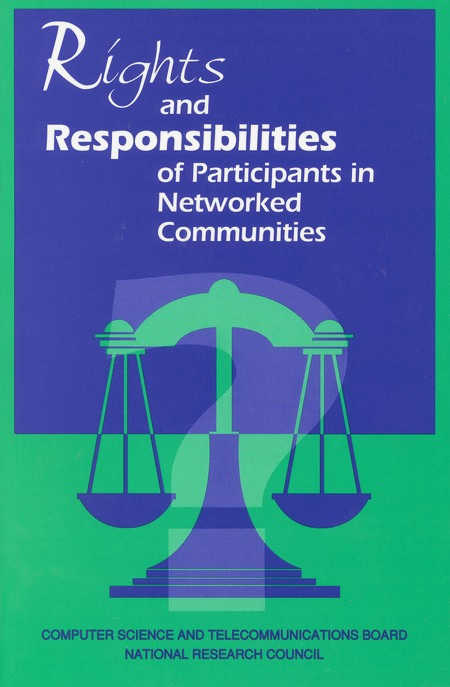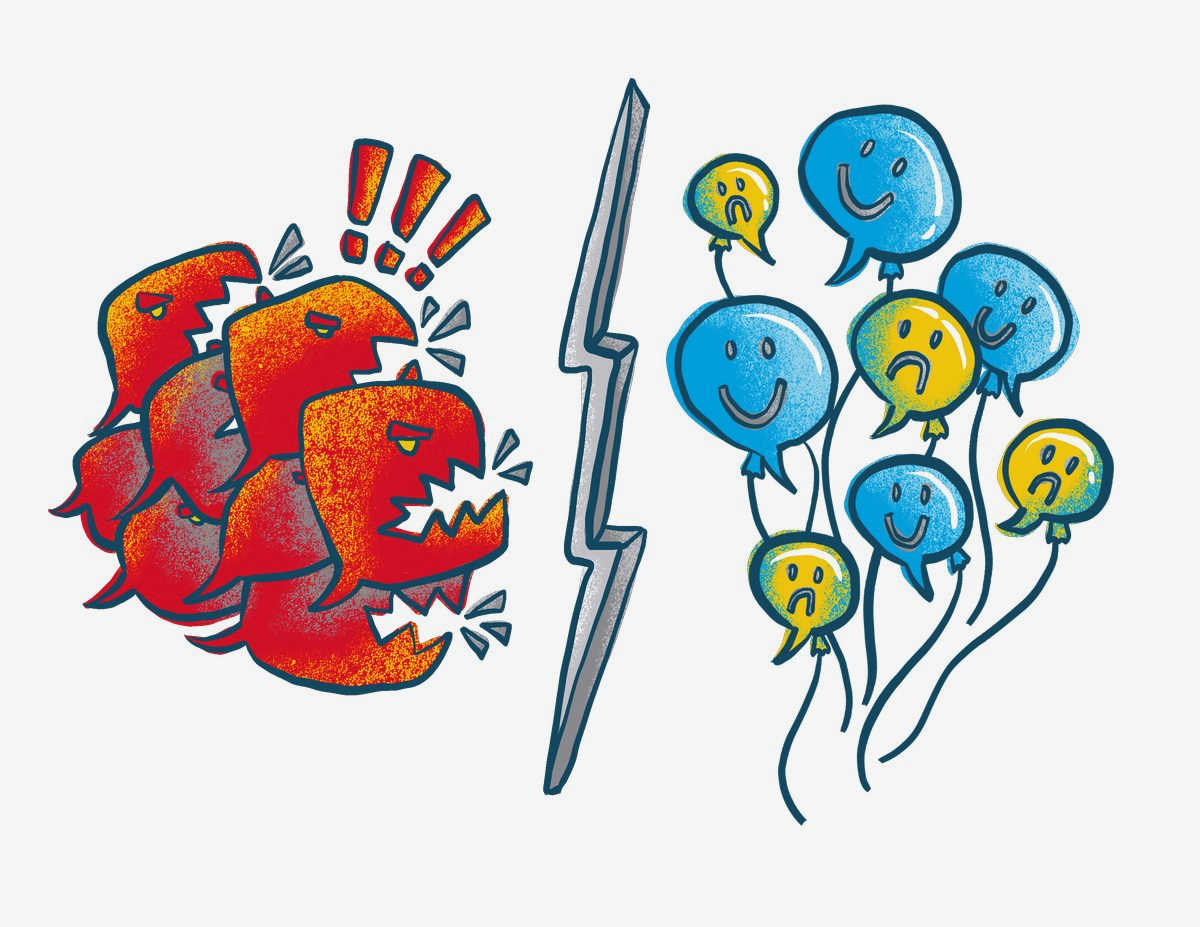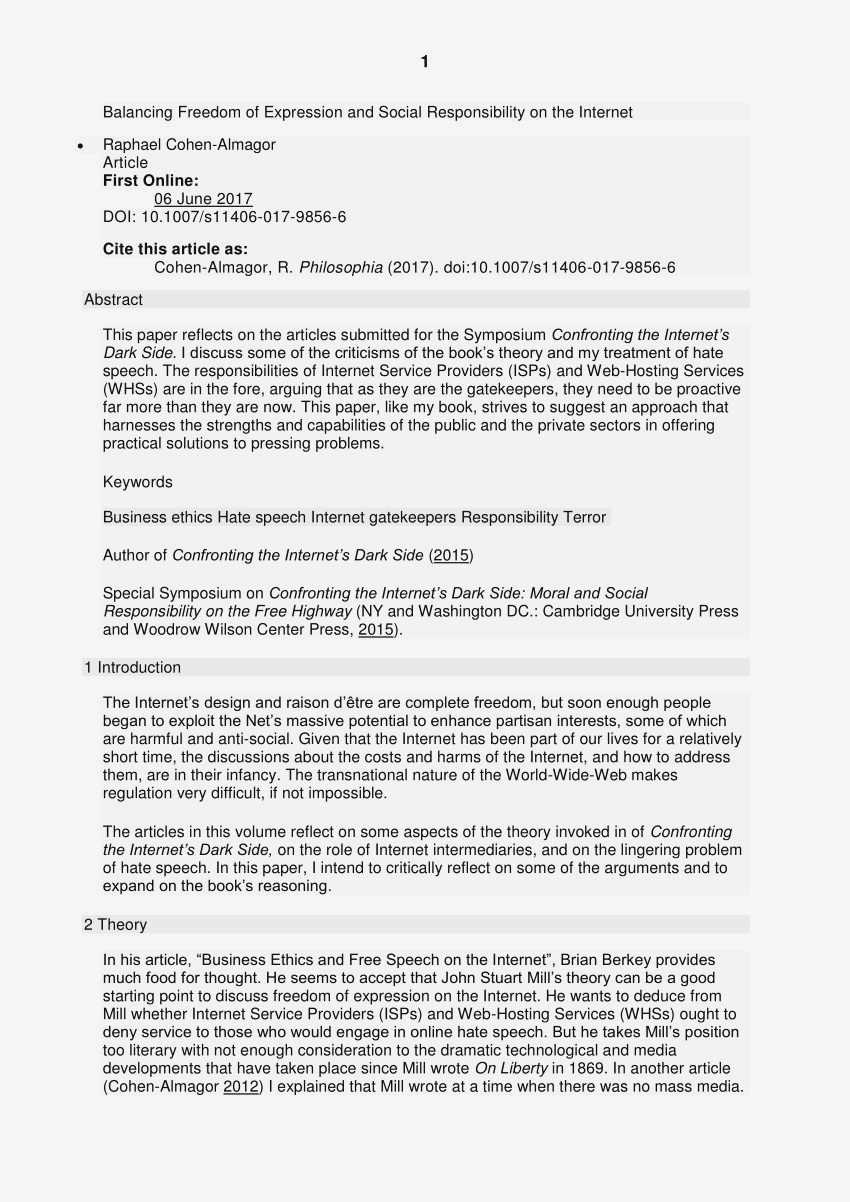In today’s interconnected world, the issue of freedom of speech and hate speech has become increasingly complex. On one hand, freedom of speech is considered a fundamental right, allowing individuals to express their opinions and ideas freely. On the other hand, hate speech can have severe and lasting consequences, contributing to discrimination, intolerance, and even violence.
The challenge lies in striking a balance between protecting freedom of speech and preventing the spread of hate speech. It is important to recognize that while individuals have the right to express their views, there is also a responsibility to consider the potential harm that their speech may cause. The key question becomes: how can we foster an environment that upholds freedom of speech while also maintaining a civil society that respects the rights and dignity of all individuals?
One approach is to establish clear guidelines and laws that regulate hate speech without unduly restricting freedom of speech. This requires a careful examination of the boundaries between expressing one’s opinions and inciting violence or discrimination. Laws and regulations should be designed to target specific forms of hate speech, such as direct threats or harassment, while allowing for robust and open debate on controversial topics.
Education and awareness also play a crucial role in addressing the intersection of freedom of speech and hate speech. By promoting media literacy and critical thinking skills, individuals can better discern between reasonable arguments and hate-filled rhetoric. Additionally, fostering a culture of tolerance and respect can help prevent the spread of hate speech and create an atmosphere where diverse opinions can be shared and debated in a constructive manner.
The Importance of Free Speech
Free speech is a fundamental right in any democratic society. It allows individuals to express their thoughts, ideas, and opinions without fear of censorship or reprisal. The ability to freely express oneself is essential for the exchange of information, the pursuit of knowledge, and the development of new ideas.
Free speech encourages open dialogue and fosters a diverse range of perspectives. It enables individuals to challenge existing norms and beliefs, promoting social progress and change. When people are free to express themselves, they can engage in constructive debates and discussions that lead to greater understanding and acceptance of different viewpoints.
Furthermore, free speech plays a crucial role in holding those in power accountable. It allows individuals to criticize and question authority, ensuring that the government and institutions are transparent and responsive to the needs and concerns of the people. Without the freedom to voice dissenting opinions, tyranny and oppression can thrive unchecked.
Additionally, free speech is essential for the protection of minority groups and marginalized communities. It enables individuals to raise awareness about injustices, discrimination, and inequality, sparking conversations and mobilizing support for social change. By giving a voice to the voiceless, free speech empowers individuals to fight for their rights and seek justice.
However, it is important to note that free speech does come with certain responsibilities. While individuals should have the liberty to express their opinions, they must also be mindful of the impact their words may have on others. Hate speech, for example, can perpetuate discrimination and incite violence, infringing upon the rights and dignity of individuals or groups. Therefore, it is crucial to strike a balance between free speech and the protection of vulnerable populations.
In conclusion, free speech is a fundamental pillar of civil society. It enables the exchange of ideas, fosters social progress, and ensures the accountability of those in power. Despite the challenges it may pose, it is essential to protect and uphold the right to free speech while also promoting a respectful and inclusive public discourse.
The Boundaries of Free Speech in the Digital Age
The rapid advancement of technology in the digital age has opened up new avenues for free speech, but it has also blurred the boundaries of what is acceptable. With the rise of social media platforms and online forums, individuals have more opportunities than ever to express their opinions and engage in public discourse. However, this freedom of speech has also led to an increase in hate speech, online harassment, and fake news.
One major challenge is determining where free speech ends and hate speech begins. While freedom of speech is a fundamental right, it is not absolute. Hate speech, which promotes discrimination, violence, or harm against a particular group, is generally considered outside the bounds of protected speech. However, distinguishing between the two can be difficult, as it often depends on context, intent, and the potential harm caused by the speech.
The digital age has also seen a rise in the spread of misinformation and fake news. While freedom of speech allows for the expression of different viewpoints, it also comes with the responsibility to ensure that information is accurate and reliable. The ease of sharing information online has made it easier for false or misleading information to circulate quickly and reach a wide audience. This poses a challenge to maintaining an informed and educated society.
The question of accountability in the digital age is another important consideration. With the anonymity provided by the internet, individuals may feel more comfortable expressing hateful or offensive views without fear of repercussions. This can create an environment where hate speech thrives, as individuals do not face immediate consequences for their actions. Striking a balance between protecting freedom of speech and holding individuals accountable for their words and actions is crucial.
Efforts to combat hate speech and misinformation in the digital age require a multi-faceted approach. Education and awareness campaigns can help individuals navigate the boundaries of free speech and understand the impact their words can have. Social media platforms and online communities can also play a role by establishing clear policies against hate speech and enforcing them consistently. In addition, collaboration between governments, tech companies, and civil society organizations is necessary to address the challenges posed by free speech in the digital age.
Ultimately, finding the right balance between freedom of speech and the prevention of hate speech in the digital age is a complex and ongoing process. It requires a careful consideration of the rights and responsibilities of individuals, as well as the potential harm caused by certain forms of speech. By promoting dialogue, education, and accountability, society can strive towards a digital landscape where freedom of speech is upheld, but hate speech and misinformation are actively challenged and prevented.
Examining Hate Speech Laws and Their Implications
Hate speech laws are an integral part of civil society as they seek to strike a balance between protecting freedom of speech and preventing harmful and discriminatory speech that incites hatred and violence. These laws vary in their scope and application across different countries, reflecting the unique cultural, political, and legal contexts in which they exist.
The implications of hate speech laws can be complex, as they often involve navigating the delicate tension between safeguarding individual rights and maintaining social cohesion. One of the key challenges is defining and identifying what constitutes hate speech, as it often involves subjective interpretations and can vary depending on cultural norms and societal values.
Hate speech laws aim to protect marginalized communities and prevent the spread of hateful ideologies that can have real-world consequences, such as inciting violence or discrimination. By establishing legal boundaries on acceptable speech, these laws serve to promote equality, respect, and harmony within society.
Defining Hate Speech
Defining hate speech is a crucial element of hate speech laws, as it sets the parameters for what speech is prohibited. Different countries have adopted different approaches to defining hate speech, with some relying on a narrow and specific definition, while others adopt a broader and more inclusive approach.
Hate speech may encompass speech that targets individuals or groups based on characteristics such as race, ethnicity, religion, gender, sexual orientation, or disability. It can manifest in various forms, including verbal, written, or online communications, and can range from derogatory slurs and insults to incitement of violence or discrimination.
Balancing Rights and Responsibilities
The enforcement of hate speech laws requires a delicate balancing act between safeguarding freedom of speech and protecting individuals and communities from harm. It is essential to strike a balance that respects the fundamental right to express oneself while also mitigating the harmful consequences of hate speech.
Ensuring that hate speech laws are implemented in a fair and proportionate manner is vital. Balancing the enforcement of hate speech laws with the principles of due process, transparency, and accountability is crucial to prevent any potential abuse or censorship of expression. Open dialogue, education, and fostering a culture of tolerance and inclusivity can also play a role in preventing and addressing hate speech within society.
The Impact of Hate Speech on Marginalized Communities
Hate speech has a profound impact on marginalized communities, extending far beyond the mere expression of offensive or derogatory remarks. It perpetuates stereotypes, fosters discrimination, and contributes to a climate of fear and hostility. Marginalized communities, such as racial and ethnic minorities, LGBTQ+ individuals, and people with disabilities, are particularly vulnerable to the damaging effects of hate speech.
Psychological harm: Hate speech can have severe psychological consequences for members of marginalized communities. It can lead to feelings of shame, fear, and worthlessness, contributing to a decline in mental well-being. Constant exposure to hateful rhetoric can exacerbate anxiety and depression, leading to a diminished quality of life.
Social exclusion: Hate speech creates a hostile environment that often results in social exclusion. It hinders the ability of marginalized individuals to participate fully in society, as they may face barriers in education, employment, and public spaces. This exclusion further reinforces inequality and marginalization.
Violence and discrimination: Hate speech not only normalizes discriminatory attitudes, but it can also fuel acts of violence and discrimination against marginalized communities. The dehumanizing language used in hate speech can incite hatred and aggression, putting individuals’ physical safety at risk and perpetuating a cycle of harm.
Undermining democratic values: Hate speech erodes the principles of equality, tolerance, and inclusivity that are the foundation of democratic societies. It creates divisions, undermines social cohesion, and threatens the ability of diverse communities to coexist peacefully. It can hinder progress toward a more just and equitable society.
Impact on health and well-being: The impact of hate speech on marginalized communities extends beyond mental health. It can also affect physical health, as individuals may experience increased stress, chronic conditions, and even higher mortality rates as a result of the discrimination and inequality perpetuated by hate speech.
Empowerment: Despite the detrimental impact of hate speech, marginalized communities have shown resilience and resilience by mobilizing against it. They have formed advocacy groups, engaged in activism, and utilized their voices to challenge and counter hate speech. Empowering marginalized communities is crucial in creating a society where freedom of speech is upheld but not at the expense of the rights and well-being of others.
The Role of Social Media Platforms in Regulating Hate Speech
Social media platforms have become powerful tools for communication and information sharing in today’s society. However, the rise of hate speech on these platforms has raised concerns about their role in promoting and regulating such harmful content.
Monitoring and Reporting: Social media platforms have a responsibility to monitor and report hate speech on their platforms. They can employ automated systems and algorithms that detect and flag hate speech, as well as establish reporting mechanisms that allow users to report instances of hate speech. These platforms should also have clear guidelines and policies in place to address hate speech and ensure its timely removal.
Community Guidelines: Social media platforms can create and enforce community guidelines that explicitly prohibit hate speech. They can outline what constitutes hate speech and provide examples to educate users on what is considered inappropriate behavior. By enforcing these guidelines, platforms can set a standard for acceptable online behavior and foster a healthier online community.
Content Moderation:
Content moderation plays a crucial role in regulating hate speech on social media platforms. Administrators can employ teams of moderators who review reported content and assess whether it violates the platform’s guidelines. These moderators can remove or restrict access to content that promotes hate speech, while at the same time ensuring that the freedom of speech is protected by carefully examining the context and intent of the content.
Collaboration with Experts: Social media platforms can collaborate with experts, such as academics, activists, and organizations specializing in combating hate speech. These partnerships can provide platforms with valuable insights and expertise in identifying and addressing hate speech effectively. By working together, these stakeholders can devise strategies and tools to mitigate the impact of hate speech and promote a more inclusive online environment.
Educational Initiatives:
Lastly, social media platforms can play a role in educating users about the consequences and impact of hate speech. They can develop educational campaigns that raise awareness about hate speech and its harmful effects on individuals and communities. By promoting digital literacy and responsible digital citizenship, social media platforms can foster a culture of respect and tolerance online.
In conclusion, social media platforms have a significant role to play in regulating hate speech. By monitoring and reporting, enforcing community guidelines, implementing content moderation techniques, collaborating with experts, and promoting educational initiatives, these platforms can contribute to creating a safer and more inclusive online environment.
Challenges in Defining and Identifying Hate Speech
Defining and identifying hate speech poses significant challenges in the context of freedom of speech. While hate speech is generally understood as any form of expression that promotes violence, discrimination, or hostility towards individuals or groups based on attributes such as race, ethnicity, religion, sexual orientation, or gender, there is no universal consensus on its precise definition.

One of the challenges lies in the subjectivity of identifying hate speech. Different individuals may have varying interpretations of what qualifies as hate speech, depending on their cultural, social, and personal backgrounds. This subjectivity can complicate efforts to create clear legal frameworks and guidelines for identifying hate speech.
Another challenge is the fine line between hate speech and legitimate forms of expression. Protecting freedom of speech is crucial in any democratic society, but it becomes complex when hate speech is involved. It requires a delicate balance between safeguarding individuals’ right to express their opinions and preventing the harmful consequences of hate speech.
Moreover, hate speech can manifest in various forms, including written, spoken, or even visual expressions. It can be disseminated through traditional media channels, such as newspapers and television, as well as through online platforms and social media. The digital era has made it easier for hate speech to spread rapidly and reach a broad audience, amplifying its potential harm.
There is also the challenge of distinguishing between hate speech and protected forms of criticism. Constructive criticism and debate are essential elements of a healthy civil society, allowing for the exchange of ideas and the advancement of knowledge. However, determining when criticism crosses the line into hate speech can be complex and subjective.
In conclusion, defining and identifying hate speech is a complex task that requires careful consideration of cultural, social, and legal factors. Striking the right balance between protecting freedom of speech and addressing the harmful effects of hate speech is vital for creating an inclusive and tolerant civil society.
Educating the Public on the Consequences of Hate Speech
Understanding the Impact
Hate speech can have severe consequences, not only for individuals targeted by the hateful language, but also for society as a whole. It is important to educate the public on the actual impact of hate speech in order to foster a more inclusive and respectful civil society.

Creating Awareness
One way to educate the public on the consequences of hate speech is through creating awareness campaigns. These campaigns can use various mediums such as social media, television, and print media to highlight real-life stories of individuals who have been affected by hate speech. By sharing personal experiences, these campaigns aim to make the consequences of hate speech more relatable and tangible for the general public.
Exploring Legal Ramifications
Another aspect of educating the public on the consequences of hate speech is by examining the legal ramifications. It is important to inform individuals about the laws and regulations in place to address hate speech, including the potential legal consequences such as fines or imprisonment. This can help create a deterrent effect and encourage people to think twice before engaging in hateful speech.
Promoting Empathy and Understanding
One approach to educating the public on the consequences of hate speech is by promoting empathy and understanding. By highlighting the negative impact hate speech has on individuals and communities, it can encourage people to put themselves in the shoes of those who are targeted, fostering a sense of empathy and compassion. This can help shift societal attitudes towards more inclusivity and respect.
Teaching Critical Thinking Skills
In order to combat hate speech effectively, it is crucial to educate the public on critical thinking skills. By teaching individuals how to analyze and evaluate information critically, they can better recognize and respond to hate speech. This education can include media literacy training, fact-checking techniques, and promoting a culture of questioning and challenging hateful narratives.
Collaboration and Dialogue
Finally, educating the public on the consequences of hate speech requires collaboration and dialogue. It is important to engage different stakeholders including schools, community organizations, and government agencies to work together in implementing educational programs and initiatives. By fostering open discussions and promoting understanding, society can take collective steps towards combating hate speech and building a more respectful and inclusive civil society.
The Ethical Dilemma: Balancing Free Speech and Harmful Expression
The Importance of Free Speech
Free speech is considered a fundamental right in many democratic societies, as it allows individuals to express their opinions, engage in political discourse, and contribute to the marketplace of ideas. It fosters a diverse range of perspectives and encourages open dialogue, which is crucial for the development of a vibrant civil society.
However, the right to free speech is not absolute and is often subject to restrictions in order to protect individuals from harm or prevent the incitement of violence. This creates an ethical dilemma: how do we balance the promotion of free speech with the need to limit harmful expression?
The Scope of Hate Speech
Hate speech refers to any form of expression that discriminates, threatens, or incites violence against individuals or groups based on attributes such as race, ethnicity, religion, or sexual orientation. It can have severe psychological and emotional effects on its targets and can contribute to the perpetuation of systemic discrimination and prejudice.

While some argue that hate speech should be protected under the umbrella of free speech, others argue that it should be restricted to ensure the protection and well-being of marginalized communities.
The Challenge of Balancing Rights and Responsibilities
The challenge lies in finding a balance between protecting individuals from harm and upholding the principles of free speech. On one hand, it is important not to stifle open dialogue and diverse perspectives, as this is crucial for the progress and development of a society. On the other hand, allowing hate speech to go unchecked can perpetuate harm and undermine the principles of equality and tolerance.

This ethical dilemma requires careful consideration and an exploration of legal frameworks, social norms, and individual responsibilities. It is important to create spaces where free speech can thrive while also addressing and challenging harmful expression. This may involve implementing laws and regulations that prohibit hate speech and providing education and awareness programs to promote tolerance and understanding.
Ultimately, striking the right balance between free speech and harmful expression requires a nuanced approach that considers the diverse needs and perspectives of a civil society. It necessitates a continuous dialogue and ongoing effort to safeguard both individual rights and societal well-being.

Promoting Tolerance and Respect in Civil Society
Education and Awareness
To promote tolerance and respect in civil society, it is crucial to focus on education and awareness. Schools and educational institutions should incorporate curriculum and programs that teach students about diversity, different cultures, and the importance of respecting others. By providing children with a comprehensive understanding of various perspectives, stereotypes and biases can be challenged and dismantled. Furthermore, fostering open discussions and dialogue about sensitive topics can help create a safe space for individuals to share their experiences and learn from one another.
Legislation and Policies
Enacting legislation and implementing policies is another key approach to promoting tolerance and respect in civil society. Governments should establish laws that explicitly prohibit hate speech and incitement to violence, while also protecting freedom of speech and expression. It is essential to strike a balance between these rights, ensuring that individuals are free to express their opinions while also preventing harmful and discriminatory rhetoric. By creating a legal framework that emphasizes the importance of tolerance and respect, society can send a clear message that hate speech will not be tolerated.
Community Engagement
Engaging and involving the community in initiatives that promote tolerance and respect is vital to creating a more inclusive society. Community organizations, religious institutions, and grassroots movements can play a crucial role in organizing events, workshops, and campaigns that foster understanding and empathy. Providing platforms for individuals to share their stories, experiences, and perspectives can help break down barriers and dispel stereotypes. Additionally, creating opportunities for interfaith and intercultural dialogue can help build bridges and foster a sense of unity and mutual respect.
Media Responsibility
The media has a significant impact on shaping public opinion and attitudes. Therefore, it is essential for media outlets to exercise responsibility by promoting tolerance and respect in their coverage. Journalists and media professionals should strive to present diverse perspectives and avoid sensationalism that may fuel hatred or discrimination. By highlighting positive stories of inclusivity and showcasing individuals who champion tolerance in civil society, the media can contribute to changing societal norms and values.
Promoting Empathy and Understanding
Lastly, promoting empathy and understanding is crucial in fostering tolerance and respect in civil society. Empathy allows individuals to put themselves in someone else’s shoes and understand their experiences and emotions. By encouraging empathy through storytelling, literature, and art, people can develop a deeper appreciation for diversity and learn to celebrate differences. Promoting understanding also involves actively challenging stereotypes and biases, encouraging individuals to question their assumptions and prejudices.
In conclusion, promoting tolerance and respect in civil society requires a multi-dimensional approach that encompasses education, legislation, community engagement, responsible media coverage, and the cultivation of empathy and understanding. It is only through these collective efforts that a more inclusive and harmonious society can be achieved.
Empowering Individuals to Combat Hate Speech
Hate speech is a growing concern in civil society, and it is important for individuals to actively combat it in order to promote a more inclusive and tolerant society. Empowering individuals to take a stand against hate speech can have a significant impact in challenging the spread of discriminatory and harmful messages.
Education and awareness: One way to empower individuals is through education and awareness. By providing people with the knowledge and understanding of what constitutes hate speech, they can better identify it and take appropriate actions. Workshops, seminars, and online courses can be organized to educate individuals on the impact and consequences of hate speech, as well as strategies to counteract it.
Creating safe spaces: Creating safe spaces where individuals can express themselves freely and without fear of hate speech is another important way to empower individuals. Communities, organizations, and institutions can establish guidelines and protocols that explicitly condemn hate speech and ensure that individuals feel supported and protected when speaking out against it.
Encouraging dialogue and empathy: Promoting dialogue and empathy is essential in combating hate speech. Encouraging open and respectful conversations between individuals with different perspectives can foster mutual understanding and empathy. This can be done through initiatives such as community forums, intercultural events, and collaborative projects, where individuals can engage in meaningful discussions and challenge their own biases.
Supporting victims: Providing support and resources for victims of hate speech is crucial in empowering individuals. This can include legal assistance, counseling services, and community networks that offer emotional support. By standing in solidarity with victims and showing them that they are not alone, individuals can help create a supportive environment that discourages hate speech.
Advocacy and activism: Empowering individuals to become advocates and activists against hate speech can have a far-reaching impact. Individuals can participate in campaigns, sign petitions, write letters to authorities, and use social media platforms to raise awareness and demand action against hate speech. By amplifying their voices and taking a public stance, individuals can inspire others to join the fight against hate speech.
Conclusion: Empowering individuals to combat hate speech is a collective effort that requires education, awareness, empathy, and active participation. By taking a stand against hate speech, individuals can contribute to the creation of a more inclusive and tolerant society where freedom of speech is upheld while ensuring the protection of individuals from discriminatory and harmful messages.
Creating an Inclusive Society: The Path Forward
Education and Awareness
To create an inclusive society, education and awareness are crucial. It is important to educate individuals about the impact of hate speech and its consequences on marginalized communities. Schools and universities should prioritize teaching tolerance, empathy, and fostering an environment that celebrates diversity. By promoting inclusivity, we can ensure that every individual feels respected and valued.
Legislation and Policies
Government bodies need to enact and enforce legislation that addresses hate speech and promotes equality. Laws should clearly define what constitutes hate speech and provide strict consequences for those who engage in it. Policies should also be put in place to support victims of hate speech and provide them with legal recourse. In addition, employers and organizations should implement strict anti-hate speech policies to create a safe and inclusive workplace for all.
Community Engagement
Creating an inclusive society requires the active engagement of the community. Community leaders, organizations, and individuals need to come together to promote tolerance and respect for all. This can be achieved through community events, workshops, and discussions that address issues related to hate speech, discrimination, and prejudice. By fostering a sense of belonging and collective responsibility, we can build a society that embraces diversity.
Media Responsibility
The media plays a significant role in shaping public opinion. Journalists and media organizations have a responsibility to report accurately and responsibly, avoiding the promotion of hate speech and discriminatory narratives. Media outlets should prioritize diversity and inclusion in their editorial content, providing a platform for marginalized voices. By doing so, the media can contribute to creating an inclusive society that celebrates and respects all individuals.
Building Empathy
Building empathy is essential for creating an inclusive society. It is important to promote dialogue and understanding between different groups, fostering empathy and compassion. By encouraging individuals to listen to and empathize with others’ experiences, we can break down barriers and foster a sense of unity. Empathy allows individuals to recognize the impact of hate speech and promotes a collective effort to combat it.
Continued Efforts
The path towards creating an inclusive society requires continued effort and commitment. It is vital to continuously evaluate and improve existing policies and initiatives. By conducting regular assessments and seeking feedback from marginalized communities, we can address any gaps or shortcomings in our efforts. Creating an inclusive society is an ongoing journey that requires the collective commitment and involvement of all members of society.





